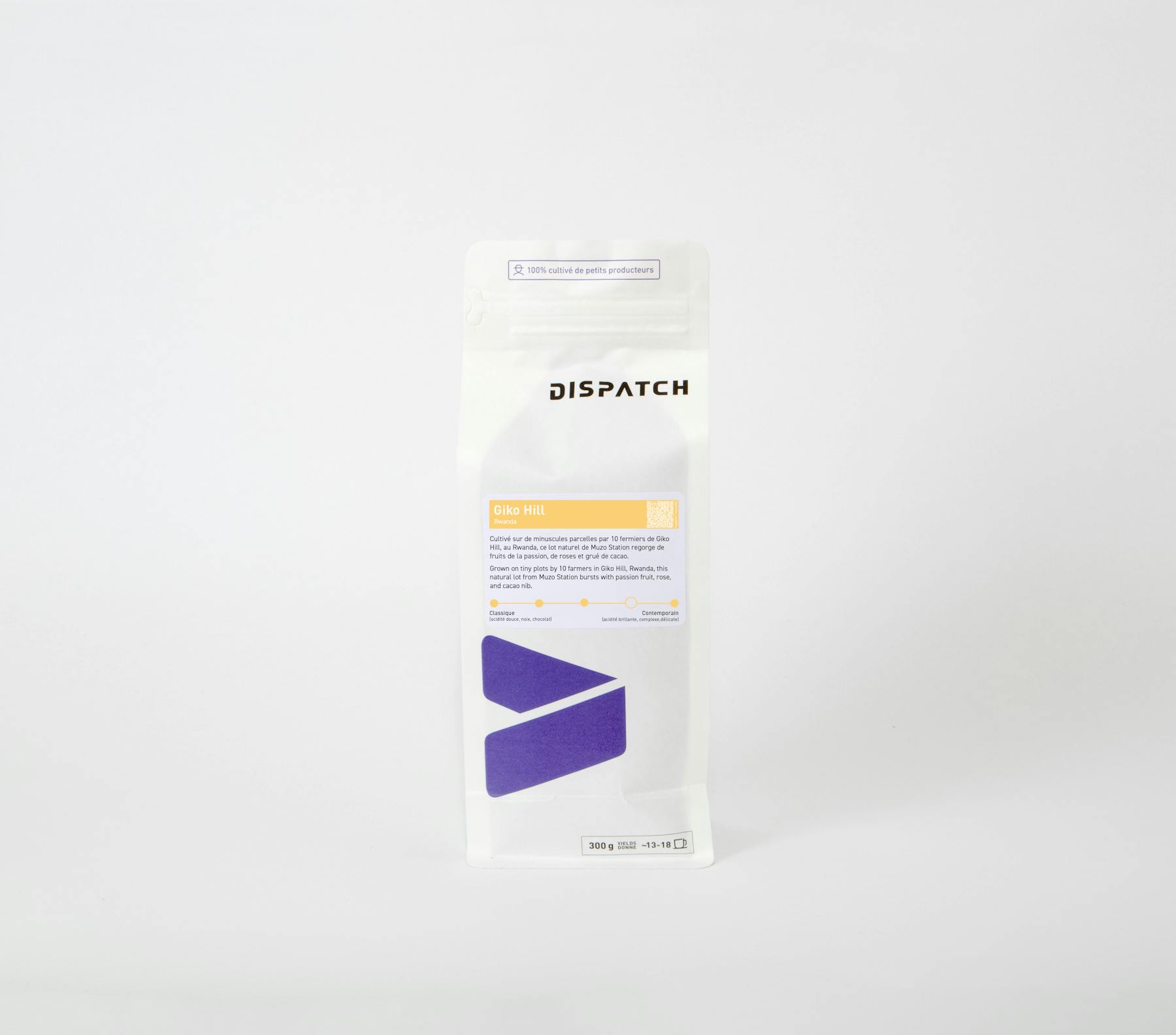Story
This vibrant Red Bourbon from Rwanda’s Giko Hill is the third annual purchase we’ve made from on-the-ground exporter Baho Coffee, and one of the most precisely traceable lots we’ve seen from this region. The harvest was assembled at the Muzo washing station in the northern Gakenke district, home to farms typically no bigger than 400 trees (and as small as 60) and where low rainfall, high temperatures, and high altitudes of 1570-2100 MASL combine to infuse coffees with intense, fruity sweetness. We taste passion fruit, rose, and cacao nib in the cup.
In fact, Muzo is the smallest of Baho’s six washing stations, serving less than 500 producers, and that’s what makes working with founder Emmanuel Rusatira’s operation so exciting. For years, “Rwandan coffee” has been assigned a very general profile, due to washing stations blending and packaging such wide-ranging product. But lots like Giko Hill offer a glimpse into the hyper-specific geographic terroir that makes coffee from this region so special.
Emmanuel is also committed to being a positive force in the local producer community. He’s involved in local education initiatives and is constantly experimenting with fermentation processes. Baho offers rates for cherry that are up to 80% above the national average farmgate price, and helps to set up loans for members. For the producers at Muzo, our importer Semilla has also stepped in to contribute an extra 50 Francs ($0.05 CAD) per kilo this year to help curb the difficulty of the off-season. Opportunity is everything here.
Coffee in Rwanda is unfortunately still interwoven with its colonial past. Decades after gaining independence from Belgian and German rule in 1962, the country’s coffee sector was still modeled for export and managed by foreign companies reliant on low quality beans purchased cheap from small farmers and sold in bulk. Following the catastrophic genocide in 1994, the government reinvested in its infrastructure and built 300 new washing stations around the country, anticipating that washed coffee would be a more valuable commodity. Today, coffee remains an integral part of the Rwandan economy, and although buying power is still concentrated around a couple major players, exporters like Emmanuel have been able to increase harvest quality and bring higher profits back to small farmers.
These cherries were collected ripe by community farmers at the washing station from March to June 2024. Like with all Muzo lots, rigorous sorting happens under shade first to remove immature or overripe cherries before they’re placed in flotation tanks for further separation. They then undergo double fermentation in tanks, first dry and then submerged in water each for a half-day. It’s then washed, graded using Baho’s proprietary quality control system, and soaked one last time before being moved onto shaded drying beds for 35-40 days.
With your purchase, you’re supporting one of the most direct and equitable supply chains in East Africa, and one of the strongest lots we’ve ever tasted from Muzo.
Full list of producers:
Nkorebarye Francois, Bakinahe Leonard, Ubudehe Kanini, Kuraduhakwe Jean, Phenius Namayabagabo, Mburano Telesphole, Laban Uwimana, Muhawenimana Mathias, Bugenimana Consolle, and Bikorabagabo Joseph.









